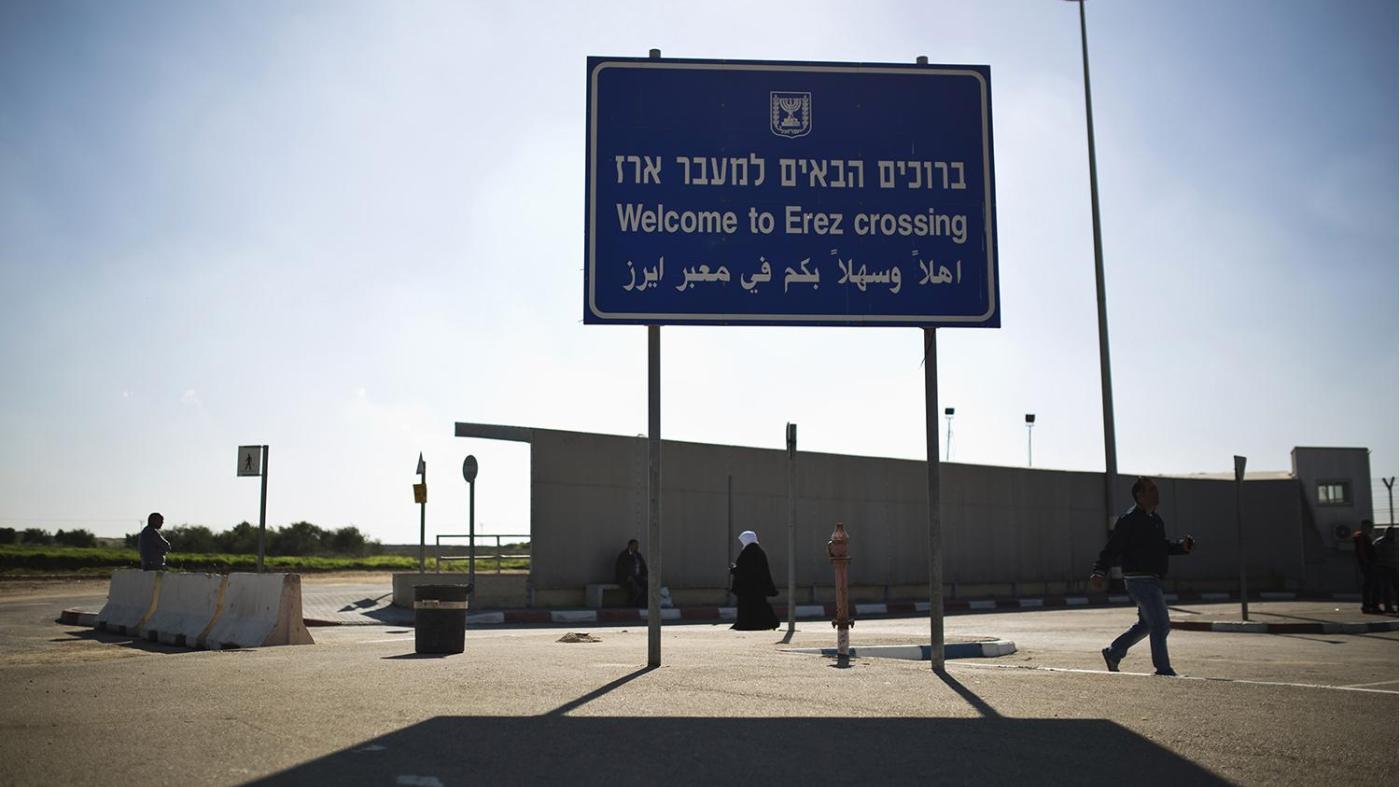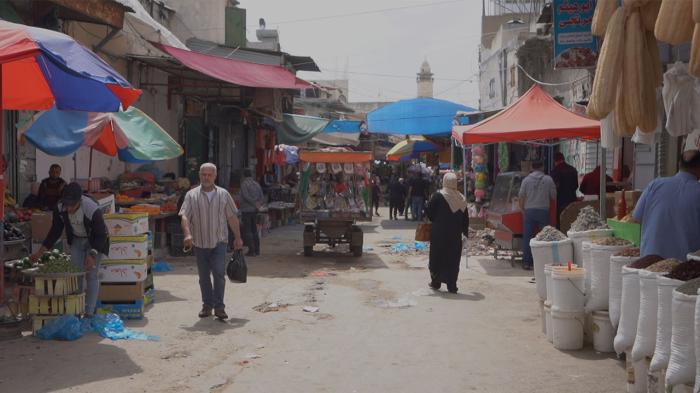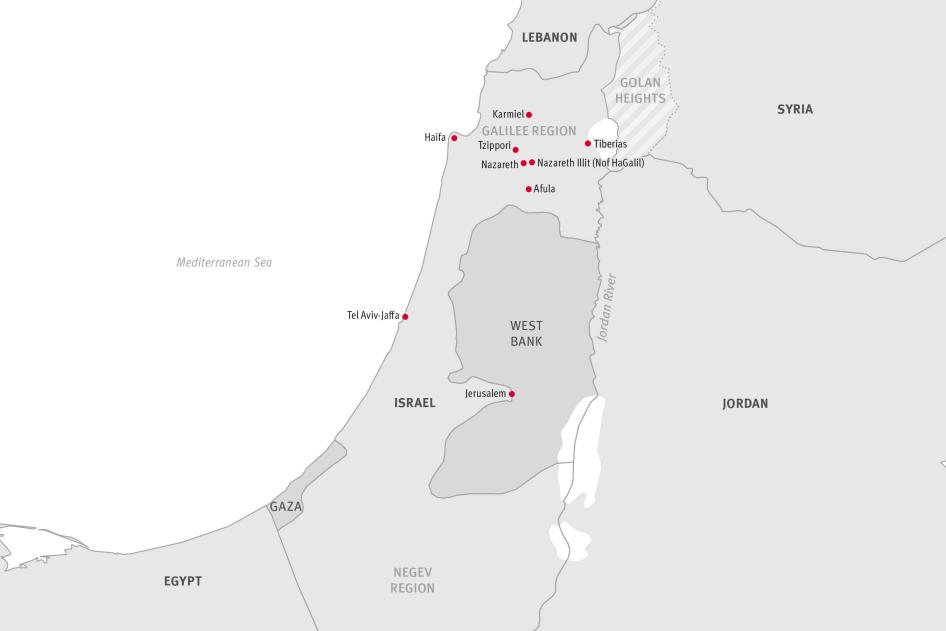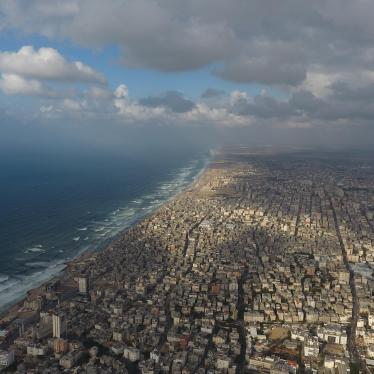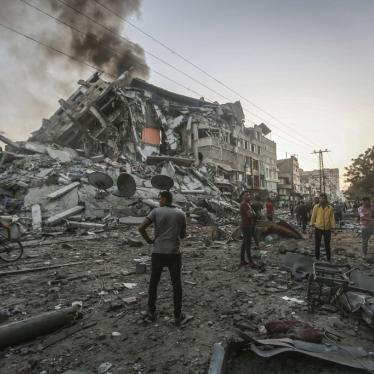Tell me about life inside Gaza since the 15-year closure.
Omar Shakir (OS): The closure penetrates virtually every aspect of everyday life, from people’s freedom of movement to the ability to pursue educational or professional opportunities, to seek medical care, or to visit family elsewhere. It has also contributed to decimating the economy in Gaza, where 80 percent of the population relies on humanitarian aid and most families cannot access reliable electricity, quality health care, and clean water. Israeli authorities bar most Gaza residents from traveling via Erez, the passenger crossing from Gaza into Israel, to study abroad, attend conferences, or take vacations, activities most of us take for granted. While an American or French tourist can tomorrow board a plane and visit the Old City of Jerusalem, Ramallah or other parts of the occupied West Bank, most Palestinians in Gaza cannot. Many young people, who make up much of the population, see no future there.
Abier Almasri (AA): Palestinians in Gaza cannot decide if they can travel, or where, or when. Those who are lucky enough to receive a scholarship or job opportunity abroad might spend months preparing for those positions, only to be denied the ability to leave Gaza.
Many of these opportunities to train and develop professionally are not available inside Gaza, and people we spoke with described how missing out has impacted not only their personal or professional development, but also their mental health. These are motivated, educated people who are graduating from school and do not see a future for themselves living under closure. They want to travel and get training, or even see the world outside, but are unable to. One person, who was repeatedly denied a permit to travel, said, “There is no future in Gaza.… There is only a death sentence.”
How does Israel justify the ban and continued closure?
OS: Israeli authorities justify the closure on security grounds and point to the rise to power of Hamas in Gaza in 2007. But Israel’s policy presumptively denies free movement to people in Gaza, with narrow exemptions, irrespective any individualized assessment of the security risk a particular person poses. Palestinians have the right under international human rights law to freedom of movement, particularly in the Occupied Palestinian Territory, that Israel can only restrict on narrow grounds such as in response to specific and concrete security threats. These blanket restrictions clearly do not meet that requirement.
How does the travel ban work? Do people have any options to travel outside Gaza?
OS: Israel imposes a generalized travel ban on Gaza’s population. The majority have never left Gaza, especially those under 30. To leave, one must obtain a rarely issued Israeli permit that is restricted to a narrow set of exemptions, such as for an urgent medical procedure.
With travel through the Israeli-controlled Erez Crossing effectively impossible for most Gaza residents, the Egyptian-administered Rafah Crossing has emerged as Gaza’s primary outlet to the outside world. But Egypt often shuts its Rafah crossing. Even when that is open, as has been the case more regularly in recent years, Egyptian authorities heavily restrict travel, including through prolonged delays and, in some cases, mistreatment of travelers.
To circumvent these restrictions, Palestinians can turn to private Egyptian travel companies, some with links to Egyptian authorities, or Palestinian mediators, and pay large sums of money to reduce the risk of denial of entry or mistreatment and expedite their travel. But this option is unaffordable for most of Gaza’s population, and often forces people who are desperate to travel for medical reasons, or to care for a sick relative, or to not miss the start of university, to take on a huge financial burden.
With so few opportunities for advancement in Gaza, many take that risk and travel through Rafah. From Egypt, some have sought to travel irregularly to Europe, risking the perilous journey with the aid of smugglers in hopes of finding freedom and opportunity in Europe.
Can you tell me about some of the people you’ve talked to who have tried to make these journeys?
AA: I spoke with the father of Saleh Hamad, who graduated from secondary school in Gaza and wanted to get a job. With few opportunities in Gaza, Saleh decided to leave. His father told us that Saleh paid US$1000 to expedite his travel out of Gaza via Egypt in 2018, then to Turkey and then paid smugglers there even more to embark on risky travel by sea across the Aegean. Reaching Europe, Saleh ran into difficulties obtaining status in Greece and then traversed multiple countries by foot before drowning while trying to cross a river that divides Bosnia and Serbia, his father told me. Saleh just wanted a job and a better life.
Another man I spoke to, Yahya Barbakh, is the sole breadwinner for his wife, two children, his mother, and his sister. He just wanted to put food on the table. Seeing no way to do that in Gaza, he traveled irregularly to Europe in January 2022. He borrowed money and sold his mother’s jewelry to fund the travel, including the cost of expediting his travel out of Gaza via Egypt.
Between Turkey and Greece, the wooden boat that smugglers provided to Yahya and other migrants hit rough waters and sank, drowning three people. Yahya said he and the other survivors were rescued and taken to a refugee center in Greece. As rescuers sought to save others, he left a voice message for his mother on a friend’s phone saying in tears, “Mom, this is Yahya. Mom, we were drowning for two hours. The [authorities] just pulled us out.… Mom, the guys with us died … Mom, the fish ate us.” Yahya decided to return to Gaza. He is traumatized by his experience, vowing never to take that risk again, despite being unemployed and facing the same uncertain future as before. “What forced us to take this risk is the prison we live in,” he said. “I see the pain in my kids and my mother when they have nothing to eat. I don’t have a job and don’t know how to feed them.”
The outcome was different for Khalil al Najar. Khalil told us he wanted to travel for a scholarship he had been awarded in the United Kingdom. He tried several times to travel via Egypt, but Egyptian authorities repeatedly blocked him. He paid US$1,500 to expedite his travel out of Gaza via Egypt but was detained by police at the Cairo airport and deported back to Gaza. He said he missed his scholarship because of the delays but was determined to leave Gaza to find opportunities elsewhere. He left and paid smugglers to reach Europe by sea. After multiple attempts, including ones in which a boat almost capsized and arrests by different authorities (one by Greek authorities lasting four months), he eventually made it to Germany, where he currently resides.
What should happen to make peoples' lives better in Gaza?
OS: The hardships imposed by the closure, including economic devastation, speaks to the desperate situation in Gaza. The lack of opportunity for people in Gaza is part of a deliberate policy imposed as part of the Israeli authorities’ crimes against humanity of apartheid and persecution against millions of Palestinians. This needs to end.
Israel must lift the generalized closure and permit free movement to and from Gaza. If Israel considers that its security requires vetting of those who enter its territory, its screening process should be individualized and subject to appeal. It has had plenty of time to develop such a system. By its generalized nature, the current travel ban is unlawful.
Abier, you were recently finally able to leave Gaza to work and pursue opportunities abroad. What is it like hearing these stories from others?
AA: I have my stories and I carry other peoples’ stories because I share a lot with them. I’m luckier than most in Gaza and work for an international organization, but even I only managed to leave Gaza for the first time in 2018, when I was 31. When I see how easy it is for others around the word to move freely, it is hard to accept the reality for Palestinians in Gaza. It is painful to know that so many are deprived of the basic right to move freely just because they are Palestinians living in Gaza.
I recall speaking to Khalil and hearing him describe life outside Gaza. He described how horizons have expanded now that hard borders and arbitrary restrictions no longer dictate his life choices and how his dreams have become plans that he feels he can achieve. Reflecting on his journey, he told me that he misses his family, community, and life in Gaza, but that, ultimately, “freedom is priceless.”
*This interview has been edited and condensed.
